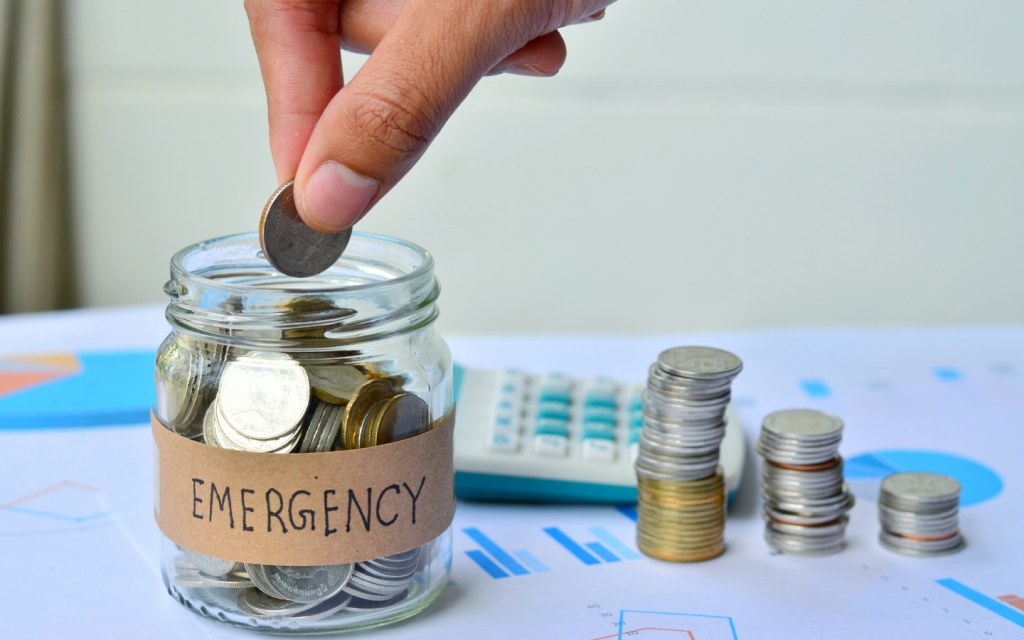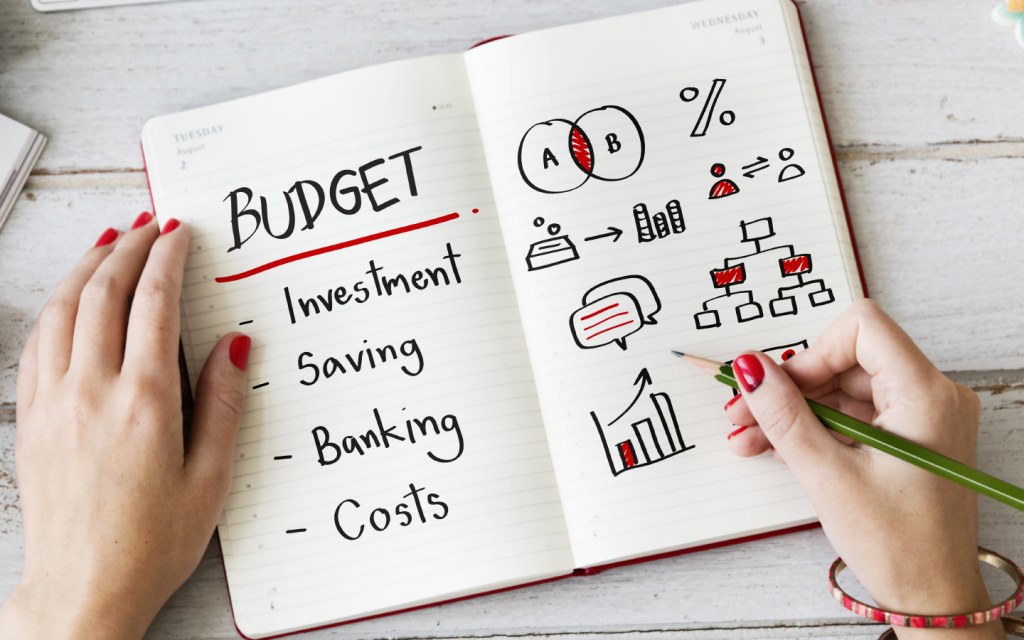You don’t need to be good at math to be good with money, you just need to be smart about your spending habits to manage your household budget. Contrary to what many people believe, maintaining a home budget is not just about making ends meet. You also need to set aside a certain amount from your total income for your emergency fund and pay off your debts (if you have any).
The key to creating a good household budget is to write everything down on paper or an electronic spreadsheet. As boring and tedious as it may sound to some, creating a home budget worksheet will not only help you manage your money but also improve your finances by allowing you to track your expenditures.
If you don’t want your family to always live paycheck-to-paycheck, here are a few simple things you can do to ensure better household budgeting.
Write down your total income

The very first step is to write down your total income at the top of your household budget spreadsheet. This should be the amount that you and/or your spouse earn every month. If the source of income isn’t permanent and if the amount fluctuates each month, write down the average monthly income or an estimate of the amount you are expecting to receive. The same rule applies to those who are self-employed.
However, if you are earning some extra cash on the side apart from bringing in a constant amount of money each month, don’t add the extra income into the equation. Instead, either put that money aside for a rainy day or make a small investment.
Add up fixed expenses

The second step is to subtract your fixed expenses from the total income of your household. Fixed expenses usually include mortgage, rent, utility bills, school fee, transportation fee, taxes, debt and grocery.
Since some household expenses require a fixed amount of money while the others vary on monthly basis, set aside an average amount for your bills and groceries keeping in mind the money you have spent on those in the past months.
If there are any other specific fixed or variable expenses, add them up as well. However, please understand this amount is bound to fluctuate on a monthly or even weekly basis.
Calculate net income

The money you are left with after subtracting your fixed and variable expenses from the total household income is the net income. No matter how small the figure is, make sure to note it down in a separate column in the household budget planner.
In case the amount is in negative, it means you have spent more than you earn. You need to take a step back and break down your expenses in ‘wants’ vs. ‘needs’ before re-evaluating your expenses once again. If you don’t do that, you’ll either have to take a loan or use your credit card, none of which are good options unless it’s an absolute necessity.
Emergency fund

If you are lucky enough to have some remaining amount after subtracting your monthly expenses, make sure to set aside at least 10-30% of your net come for the emergency fund. According to most finance experts, an ideal emergency fund should be worth at least three months of total income. The easiest and most effective way to go about this is to open a savings account in your nearby bank.
This money can be used in case of an emergency, be it a tire that needs to be replaced on an immediate basis or something more serious in nature. Since it’s not possible for everyone to set aside a large amount, make a habit of saving at least a few hundred rupees each month from your household budget.
Get the entire family on board

You can’t manage a home budget without getting all of its residents on board. Instead of being the bad guy enforcing restrictions of everyone’s spending habits, ask for their suggestions and advice on how to cut down on expenses.
The more ideas you have the better your household budget would be. If you have children, make sure to involve them in the process too. It will not only develop a sense of money management in the kids but also help them learn how much certain things cost.
Adjust spending habits

Apart from the predicted expenses, you also need to keep aside money for sudden or unpredictable expenses. You need to have cash on hand in case a friend decides to get married or someone invites you to their housewarming party. If your net income isn’t very significant, opt for less expensive and more practical gift items.
Moreover, adjust your spending habits. If you eat out a lot or like to spend money on certain ‘wants,’ take a step back and re-evaluate your decisions. Instead of ordering takeout when tired, cook something basic to save time.
There are also a lot of DIY tutorials available online that will help you save a lot of money on home improvement and other things.
Use lists while shopping

Don’t go grocery shopping without a list. Make it an ultimate rule in your household if you have to. If possible, don’t take your kids along either. However, if that’s not an option, don’t let them put anything in the trolley that isn’t on your monthly or weekly grocery list.
If you are going out shopping, list down the number of things you want to buy and then write down the maximum amount you’re willing to pay for that item. If you spend more than that on something, deduct it from the final amount of the next item.
As tough as it sounds, it is important for you to cultivate this habit in yourself and your family so you aren’t completely broke at the end of the month.
Don’t abuse the credit card

Keep your credit card for emergencies only – and no, a clearance sale on your favourite brand does not qualify as an emergency. If you are an impulsive buyer, hand over your credit card to someone more responsible. Make sure you don’t order anything online either, because shipping charges and other taxes can sometimes cost double the amount you thought you would have to pay.
If you run out of money at the end of the month, it simply means you went over your household budget. If you use your credit card for avoidable expenditures, you’ll have to deduct that amount plus interest from your net income next month.
Look for ways to earn extra cash

Even if the net income of your household is enough to last your family an entire month, you still need to think about saving up. The best way to go about this is to start looking for ways to earn cash besides your regular job. You or one of your family members can start giving tuitions, launch a small business from home or pick up some freelance work.
If a family member is into cooking and baking, they can even consider catering for small events. Similarly, if someone is good at planning and organizing, they can start an event management business.
Reevaluate your home budget

Just because you sat down and worked on the home budget worksheet earlier in the month doesn’t mean you won’t have to look at it again for the next 30 days.
Apart from fixed expenses, your monthly home budget is bound to fluctuate every month, which means you’ll have to re-evaluate your spreadsheet several times during this period. Note down additional expenses like purchasing birthday gifts and ordering takeout for unexpected guests so you can have a clear idea about your spending habits as well.
In addition to that, make sure you pay your bills on time to avoid extra charges. You should also sit down with your family members and discuss ways to save money on utilities by turning off unnecessary lights around the house, limiting phone usage etc.
Don’t ignore the importance of home budgeting. Tracking your finances can be tiresome, but taking these steps will certainly pay off in the future.
Are you looking for the best real estate blogs in Pakistan? Want to connect to the top source of property blogs in Pakistan? Stay connected to Zameen Blog and share your favourite pieces with your friends and family.



